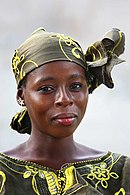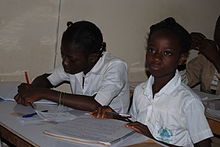The Republic of Côte d'Ivoire is a nation in West Africa. It is regularly known in English as Ivory Coast. It has a range of 322,462 square kilometres (124,503 sq mi), and outskirts the nations Liberia, Guinea, Mali, Burkina Faso and Ghana; its southern limit is along the Gulf of Guinea. The nation's citizenry was 15,366,672 in 1998 and was assessed to be 20,617,068 in 2009. Côte d'Ivoire's first national evaluation in 1975 checked 6.7 million occupants.
Before its colonization by Europeans, Côte d'Ivoire was home to some states, incorporating Gyaaman, the Kong Empire, and Baoulé. There were two Anyi kingdoms, Indénié and Sanwi, which endeavored to hold their divided personality through the French pioneer period and after Côte d'Ivoire's freedom. A 1843–1844 settlement made Côte d'Ivoire a "protectorate" of France and in 1893, it came to be a French province as a component of the European scramble for Africa.
Côte d'Ivoire ended up being autonomous on 7 August 1960. From 1960 to 1993, the nation was advanced by Félix Houphouët-Boigny. It supported close political and investment affiliation with its West African neighbours, while in the meantime upholding close ties to the West, in particular to France. Since the finish of Houphouët-Boigny's principle, Côte d'Ivoire has encountered one rebellion, in 1999, and a common war, which softened out up 2002. A political assention between the administration and the dissidents carried a come back to peace. Côte d'Ivoire is a republic with a solid official power put resources into the President. Its by law capital is Yamoussoukro and the grandest city is the port city of Abidjan. The nation is separated into 19 areas and 81 divisions. It is a part of the Organisation of the Islamic Conference, African Union, La Francophonie, Latin Union, Economic Community of West African States and South Atlantic Peace and Cooperation Zone.
The official dialect is French, even though a large number of the neighborhood dialects are considerably utilized, incorporating Baoulé, Dioula, Dan, Anyin and Cebaara Senufo. The prevailing religions are Islam, Christianity (principally Roman Catholic) and different indigenous religions.
Through processing of espresso and cocoa, the blue grass was an investment powerhouse throughout the 1960s and 1970s in West Africa. Then again, Côte d'Ivoire experienced a monetary emergency in the 1980s, accelerating the nation's time of political and social turmoil. The 21st century Ivoirian economy is greatly showcase-built and depends largely with respect to farming, with smallholder money edit handling being predominant.
Before its colonization by Europeans, Côte d'Ivoire was home to some states, incorporating Gyaaman, the Kong Empire, and Baoulé. There were two Anyi kingdoms, Indénié and Sanwi, which endeavored to hold their divided personality through the French pioneer period and after Côte d'Ivoire's freedom. A 1843–1844 settlement made Côte d'Ivoire a "protectorate" of France and in 1893, it came to be a French province as a component of the European scramble for Africa.
Côte d'Ivoire ended up being autonomous on 7 August 1960. From 1960 to 1993, the nation was advanced by Félix Houphouët-Boigny. It supported close political and investment affiliation with its West African neighbours, while in the meantime upholding close ties to the West, in particular to France. Since the finish of Houphouët-Boigny's principle, Côte d'Ivoire has encountered one rebellion, in 1999, and a common war, which softened out up 2002. A political assention between the administration and the dissidents carried a come back to peace. Côte d'Ivoire is a republic with a solid official power put resources into the President. Its by law capital is Yamoussoukro and the grandest city is the port city of Abidjan. The nation is separated into 19 areas and 81 divisions. It is a part of the Organisation of the Islamic Conference, African Union, La Francophonie, Latin Union, Economic Community of West African States and South Atlantic Peace and Cooperation Zone.
The official dialect is French, even though a large number of the neighborhood dialects are considerably utilized, incorporating Baoulé, Dioula, Dan, Anyin and Cebaara Senufo. The prevailing religions are Islam, Christianity (principally Roman Catholic) and different indigenous religions.
Through processing of espresso and cocoa, the blue grass was an investment powerhouse throughout the 1960s and 1970s in West Africa. Then again, Côte d'Ivoire experienced a monetary emergency in the 1980s, accelerating the nation's time of political and social turmoil. The 21st century Ivoirian economy is greatly showcase-built and depends largely with respect to farming, with smallholder money edit handling being predominant.
Geography
Côte d'Ivoire is a nation of western sub-Saharan Africa. It fringes Liberia and Guinea in the west, Mali and Burkina Faso in the north, Ghana in the east, and the Gulf of Guinea (Atlantic Ocean) in the south. The nation falsehoods between scopes 4° and 11°N, and longitudes 2° and 9°W.
Demographics
77% of the inhabitants present are recognized Ivoirians. They speak for some diverse individuals and dialect bunches. An expected 65 dialects are talked in the nation. A standout amongst the most normal is Dyula, which functions as an exchange dialect and in addition a dialect generally talked by the Muslim people.
French, the official dialect, is showed in schools and serves as a lingua franca in the nation. The local conceived people is harshly part into three gatherings of Muslim, Christian (essential Roman Catholic) and animist Since Côte d'Ivoire has created itself as a standout amongst the best West African countries, about 20% of the residents (about 3.4 million) comprises of specialists from neighbouring Liberia, Burkina Faso and Guinea.
4% of the inhabitant total is of non-African lineage. A significant number are French, Lebanese, Vietnamese and Spanish nationals, and also Protestant ministers from the United States and Canada. In November 2004, around 10,000 French and other unfamiliar nationals cleared Côte d'Ivoire because of ambushes from master-administration youth local armies. Aside from French nationals, there are local-conceived relatives of French settlers who landed throughout the nation's provincial period.
French, the official dialect, is showed in schools and serves as a lingua franca in the nation. The local conceived people is harshly part into three gatherings of Muslim, Christian (essential Roman Catholic) and animist Since Côte d'Ivoire has created itself as a standout amongst the best West African countries, about 20% of the residents (about 3.4 million) comprises of specialists from neighbouring Liberia, Burkina Faso and Guinea.
4% of the inhabitant total is of non-African lineage. A significant number are French, Lebanese, Vietnamese and Spanish nationals, and also Protestant ministers from the United States and Canada. In November 2004, around 10,000 French and other unfamiliar nationals cleared Côte d'Ivoire because of ambushes from master-administration youth local armies. Aside from French nationals, there are local-conceived relatives of French settlers who landed throughout the nation's provincial period.
Religion
Religion in Côte d'Ivoire remains extremely heterogeneous, with Islam (generally all Sunni Muslims) and Christianity (chiefly Roman Catholic) being the major religions. Muslims overwhelm the north, while Christians rule the south. In 2008, 38.6% of Côte d'Ivoire was Muslim, accompanied by 32.8% Christian, 11.9% honing indigenous religions and 16.7% with no religion. Côte d'Ivoire's capital, Yamoussoukro, is moreover home to the greatest temple fabricating in the planet, the Basilica of Our Lady of Peace of Yamoussoukro.
Education
A great part of the grown-up citizenry, specifically ladies, are uneducated. Numerous youngsters between 6 and 10 years are not enlisted in school. The greater part of scholars in auxiliary training are male. At the close of optional training, learners can sit the Baccalauréat examination.The nation has colleges in Abidjan (Université de Cocody) and Bouaké, (Université de Bouaké).
Miss Côte d'Ivoire 2012:














No comments:
Post a Comment